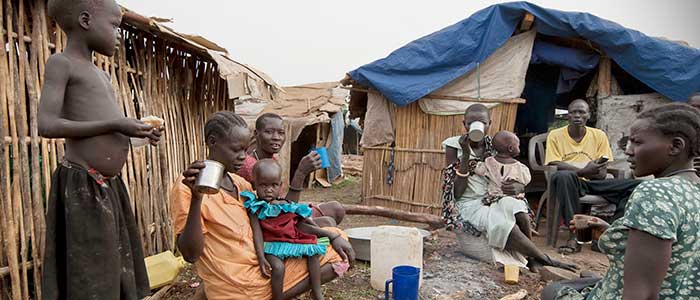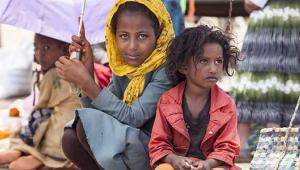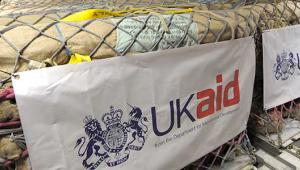Web_SouthSudan_iStock_000061842024_Large.jpg

People in displaced persons camp in Juba, South Sudan
Conflict, drought and poor harvests have created a dire humanitarian crisis in the country, with 4 million people facing severe food shortages ‒ an 80% increase on this time last year. Thirty thousand people are already believed to be experiencing starvation in Unity State, where violence has significantly disrupted humanitarian operations.
The UK’s international development minister Grant Shapps said: “It is clear there is an urgent and deepening crisis in South Sudan. More people than ever before are facing severe and catastrophic food shortages and without additional relief the world’s newest country faces a very real risk of famine.”
The UK is already the second largest bilateral humanitarian donor to South Sudan. The country will donate a further £20m to the crisis, announced shortly after the prime minister committed to spend half of the British aid budget on stabilising broken and fragile states and regions.
The money will enable people to buy or receive food and towards boosting local farming and agriculture to help around 400,000 people become more resilient to extreme weather events such as drought.
Both the UK and China’s donation focuses on areas of conflict. China will contribute $5m to assist people in the Unity, Upper Nile and Jonglei regions where people rely heavily on humanitarian aid.
China’s funding will be received by the World Food Programme, which will use the funds to help meet the immediate food needs of those that are vulnerable.
Joyce Luma, WFP country director in South Sudan, said: “China’s generosity comes at a crucial moment when we must support people who are on the brink of a hunger calamity in remote parts of the conflict-affected areas.
“We are working around the clock with our partners to save lives, and this support from China helps address a critical need.”
South Sudan is one of the most dangerous places for aid work, and humanitarian assistance remains heavily restricted in the country.
Over 2.3 million people have fled their homes, leaving 1.6 million displaced internally and a further 640,000 seeking refuge in neighbouring countries.
One such country bordering South Sudan ‒ Ethiopia ‒ is also grappling with increasingly severe food insecurity as drought pushed the number of people requiring emergency food aid up to 8.2 million.













